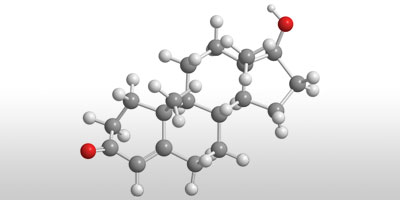
SPECIALTY LAB TESTING
At VITALIZE Natural Medicine, we offer an extensive menu of cutting-edge functional and specialty lab testing to determine the underlying causes of your health imbalances. Some of the most popular include:

Digestive Function
Compromised gut function is often the root cause of many illnesses. We provide comprehensive microbiome testing with particular attention to the bacterial, parasitic, fungal, protozoan and viral pathogens that can disrupt the normal microbial balance and contribute to digestive problems and chronic disease.

Genetic Predisposition

Heavy Metal Testing

Mycotoxin (Mold) Testing
High levels of mold exposure can result in unhealthy levels of mycotoxins in the body, which can trigger or exacerbate many different diseases. Mycotoxins are some of the most prevalent toxins in the environment and can infest buildings, vehicles, and even food. The majority of mycotoxin exposure is through food and air and, unfortunately, mycotoxins are resistant to heat and many processing procedures. Diseases and symptoms linked to mycotoxin exposure include fever, pneumonia-like symptoms, heart disease, rheumatic disease, asthma, sinusitis, cancer, memory loss, vision loss, chronic fatigue, skin rashes, depression, ADHD, anxiety, and liver damage.
Our mycotoxin testing is conducted with a urine sample and can help determine whether you have been exposed to dangerously high levels of several mycotoxins: Aflatoxin, Ochratoxin, Sterigmatocystin, Roridin E, from molds such as Aspergillus, Penicillium, Stachybotrys (aka black mold), and Fusarium.

Nutrient Status
Nutrient status testing measures your functional need for antioxidants, B-vitamins, minerals, essential fatty acids, amino acids, digestive support, and other select nutrients in the body. This nutritional analysis offers insight into your overall nutrient status in order to develop a targeted treatment plan to vitalize your health and augment recovery from complex chronic conditions. Select genomic biomarkers may be added to the panel for enhanced personalization of therapies.
Nutritional deficiencies are a common cause in chronic conditions such as:
- Mood Disorder (Anxiety, Depression, etc.)
- Fatigue
- Digestive Complaints
- Chronic Pain/Inflammatory Conditions (Musculoskeletal, Migraines, etc.)
- Optimal Health and Sports Fitness
- Weight Issues
- Cardiovascular Risk
Micronutrient testing provides a valuable window into your overall health status, revealing which nutrients you may be lacking. The results enable us to customize a supplement, vitamin shot, or IV protocol to address these deficiencies. Optimizing nutrient levels usually leads to enhanced energy, mood, productivity, and mental function.

Food Sensitivity Testing
Food sensitivities manifest more subtly in our bodies than food allergies, which show up rapidly and are, therefore, easier to identify. Food sensitivities may present as symptoms of fatigue, inflammation, headaches/migraines, bloating, gastrointestinal distress, chronic pain, congestion, skin issues, and more. These symptoms are often delayed, appearing hours, or even days after consumption. Many of the foods that cause these reactions are so commonly consumed (such as wheat, dairy, eggs) that it can be difficult to connect a symptom with a particular food.
Our food sensitivity panels assess your immune response (IgG antibodies) to over 100 common foods. After identifying and eliminating the food(s) causing the immune response, you will likely see dramatic improvements in symptoms and thus quality of life within just a few weeks.

Environmental Pollutants
The degree of exposure to pollutants in our air, water, food, and the physical objects we come in contact with, combined with our ability to excrete such toxins, determines our “toxic burden.” High toxic burdens due to increased exposure to chemical-laden products and toxic chemicals in the environment have led to accelerating rates of chronic illnesses like cancer, heart disease, chronic fatigue syndrome, chemical sensitivity, autism spectrum disorders, ADD/ADHD, autoimmune disorders, Parkinson’s disease, and Alzheimer’s disease.
Our environmental pollutants testing aims to evaluate your toxic burden by measuring blood levels of common environmental pollutants: organophosphate pesticides, phthalates, benzene, xylene, vinyl chloride, pyrethroid insecticides, acrylamide, perchlorate, diphenyl phosphate, ethylene oxide, acrylonitrile, and more. This panel also measures Tiglylglycine (TG), a marker for mitochondrial disorders resulting from mutations of mitochondrial DNA. These mutations can be caused by exposure to toxic chemicals as well as infections, inflammation, and nutritional deficiencies.

Hormone Testing
Hormone testing provides information about the impact of shifting hormone levels in men (andropause, or male menopause) and women (perimenopause/menopause). Hormone imbalances can dramatically affect the quality of life. Common symptoms of hormonal changes include:
- Weight gain
- Anxiety
- Fatigue
- Low sex drive and performance issues
- Sleep disturbances
- Mood instability
- Brain fog
- Hot flashes
These symptoms are particularly common for women going through menopause, but they are becoming increasingly problematic for younger women and men as well. For women, hormone imbalances can lead to hot flashes, poor memory, moodiness, breast tenderness, weight gain, low libido, anxiety, and depression. In men, they can lead to difficult weight loss, fatigue, depression, low stamina, low libido, and difficulty maintaining muscle mass.
Both men and women see dramatic improvements in overall quality of life when hormones are properly balanced.


